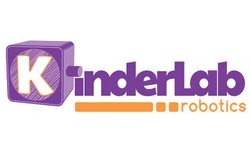KinderLab Robotics’ KIBO STEAM coding robot kit offers an innovative, screen-free way for children to learn to code. KIBO is more than a toy that can be shoehorned into the classroom; it’s an educational tool based on 20 years of child development research by Dr. Marina Bers and her team at Tufts University. KIBO empowers young learners, ages 4 to 7, to create, design, decorate and bring their own robot to life.
Children program their KIBO robot with “tangible code” made of wooden blocks that they arrange in sequence and then scan with the robot. This approach not only eliminates screen time but takes advantage of years of research into how physical manipulatives inspire young children to engage with abstract skills like coding. With KIBO, they engage in learning STEAM concepts through physical play and creative self-expression.
KIBO is designed to be extended and decorated with craft and other building materials, providing a platform for play, sturdy building, and the engineering design process. KinderLab’s curriculum guides provide activities in which students transform KIBO into imagined animals, vehicles, storybook characters, and more.
KIBO enables educators to teach computer science standards through creative coding, arts, and imaginative play.
Formats/platforms used:
KIBO is a hands-on robot, where no screens are required.
Primary website’s URL:
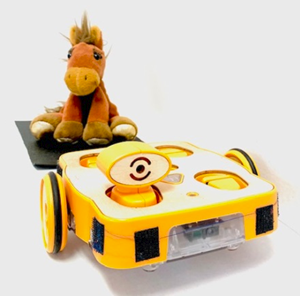
Problem solved:
KIBO introduces and integrates developmentally appropriate robotics and coding into early childhood education, teaching computer science, engineering, and computational thinking to young children in pre-K through 2nd grade.
Since 2013, KIBO has provided a platform for young students to engage and learn STEAM concepts through play and creative self-expression. KIBO brings robotics and coding to young learners and sparks their interest in STEAM. When children code with KIBO, they are learning invaluable skills that will lead them on the path for success in science, technology, engineering, art, and mathematics (STEAM) skills and future careers.
It is important to introduce coding robots for kids at a young age, as research shows that even the youngest students can learn sequencing and coding in a fun and engaging way, regardless of curriculum. Specific, powerful, and positive learning outcomes for young learners when working with KIBO robotics include:
- Improved sequencing ability in early childhood;
- Mastery of foundational coding and robotics skills;
- STEAM success: Integration of robotics across curricula; and
- Positive impact on underrepresented groups in STEM fields.
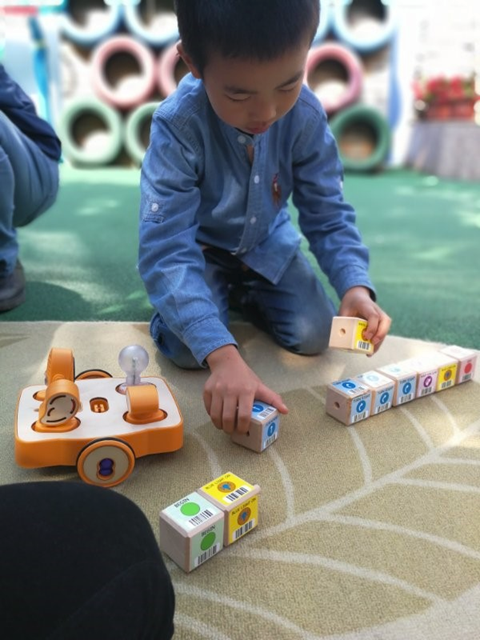
Grade/age ranges:
KIBO is designed for children ages 4–7 (pre-K–2nd grade).
Core or supplemental?
KIBO can easily be integrated into existing instruction to enhance any curriculum or theme and engage young students to learn STEAM concepts. KinderLab’s complete suite of teaching materials helps educators incorporate STEAM elements into a wide range of curricula, including art, cultural studies, and reading literacy.
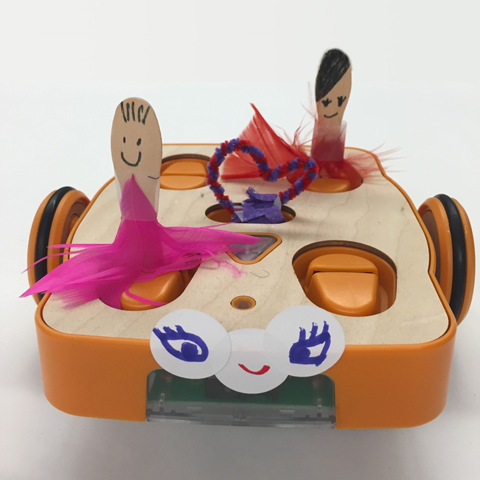
Standards:
KinderLab Robotics’ offers over a 160 hours of standards-aligned lesson plans and curriculum in robotics, coding, and computational thinking. The curriculum is aligned with both ISTE and CSTA standards in computer science and engineering, and supports deep cross-curricular connections to science, ELA, math, and social studies.
Full standards mappings are available from KinderLab Robotics on request.
Lesson time needed:
KIBO is easy and fun to use out of the box! It only takes the child’s imagination to get going. KinderLab offers free resources, lesson plans, activities, and curriculum to get children and their educators started with KIBO. Additionally, KinderLab offers different opportunities for professional development. These hands-on experiences target the different needs of schools and early childhood centers. From one-hour web conferences to two-day on-site workshops, KinderLab will hand-craft the best suited program for the educator.
Pricing models:
KIBO starts at $220 for standalone kits and $1,400 for classroom packages. For more information, please see: https://kinderlabrobotics.com/kibo/
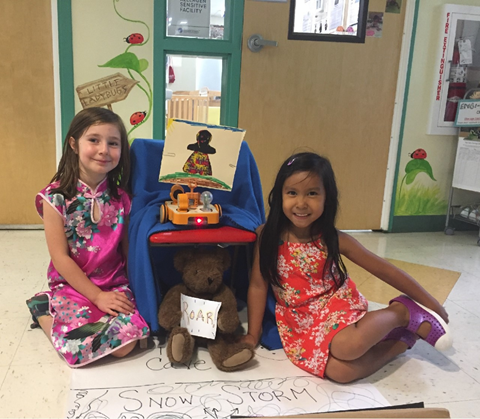
Additional services needed:
There are no additional services needed. Our classroom packages, however, include curriculum, workbooks, and 2 hours of professional development.
What makes KIBO unique?
Since 2013, KIBO has provided a screen-free way for young learners to start their journey into learning code. Based on https://kinderlabrobotics.com/research-articles/">20 years of early child development research, KIBO provides a hands-on robot to engage young students to learn STEAM concepts through play and creative self-expression. KIBO is an open coding and robotic platform that can be easily integrated into existing curriculum or classroom projects, such as literacy, social studies, science, math, and art.
When children build, code, and decorate their own robot, they perceive it as play, but they are learning invaluable STEAM skills that will lead them on the path for success in science, technology, engineering, art, and mathematics—and future careers.
Characteristics:
The user interface is the screen-free, hands-on robot itself. The children build and decorate their robot to turn it into anything they want it to be: a character from a story, a carousel, a dancer, a race car, a helicopter—the possibilities are endless.
Here’s what users are saying:
“We are totally in love with the KIBOs and all the potential learning they hold. I keep thinking of the extensive thought that went into designing them and how that is paying off in so many ways for all the children who use them.”
—Robin Ricketts, Computational Thinking and Robotics Teacher
www.stewardschool.org/">https://www.stewardschool.org/" target="_blank">The Steward School, Richmond, VA
“The best way to get students excited about science and engineering is to engage them very early on in hands on projects...KIBO has certainly delivered...Our students have absolutely loved working these robots."
—Melissa Mackedon, Principal, http://osit.nv.gov/uploadedFiles/osit.nv.gov/Content/STEM/STEM%20Spotlig...">Oasis Academy, Fallon, NV
"It is widely recognized that young children learn best by playing, creating, and moving with actual concrete objects. KIBO not only taps into students that are technology-focused, but also has a whole creative aspect that the students can really get creative with."
—Samantha Culpepper, Assistant Principal, Chapel Hill Preparatory School, Dallas Independent School District, Dallas, TX

